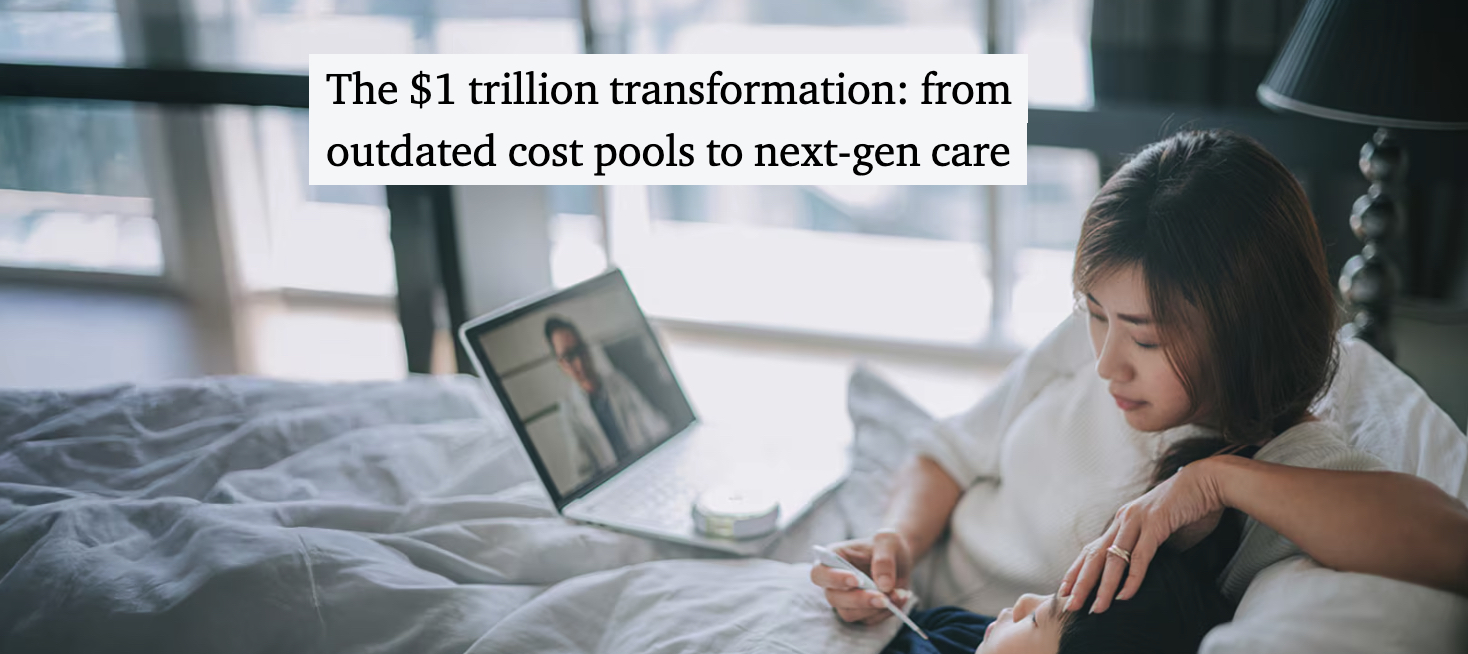
What You Should Know:
– The U.S. healthcare system is on the verge of a fundamental transformation. A new report from PwC,”From breaking point to breakthrough: the $1 trillion opportunity to reinvent healthcare,” predicts a massive shift in how care is delivered, funded, and experienced.
– Over the next decade, PwC expects $1 trillion of annual healthcare spending to move away from fragmented, infrastructure-heavy models and toward a digital-first, proactive, and personalized system. This transformation is already taking shape through AI-supported decision-making, virtual-first delivery, and consumer-centered platforms.
The need for this change is urgent. The U.S. healthcare system is approaching $5 trillion in annual spending, with costs rising at an unsustainable rate of around 8% per year. Despite having the highest per capita spending in the world, Americans have shorter lifespans than citizens of peer nations. The system is also burdened by fragmented care, administrative overload, and a growing shortage of physicians.
The Future of Healthcare: Proactive, Automated, and Accessible
By 2035, PwC envisions a healthcare system that is proactive, automated, robot-enabled, and accessible wherever life happens. In this future, physicians will become “data-orchestrators” who use AI to triage risk, personalize care, and focus on clinical judgment rather than administrative burden. Hospitals and sites of care will be reimagined as high-speed care nodes for brief, precise interventions, with most routine care shifting to the home.
This future is enabled by the convergence of powerful advances in technology, biology, and economics.
- Technology: AI and robotics will become the system itself, not just an augmentation. AI will drive drug discovery, diagnosis, and eliminate administrative burdens.
- Biology: Advancements in biology will shift healthcare from reactive treatment to proactive, predictive, and personalized care. Gene therapies will begin to replace lifelong symptom management with one-time cures.
- Economics: The current unsustainable economics of the healthcare system are creating the pressure needed for this transformation. By 2035, $1 trillion in annual healthcare spending will be reallocated from outdated cost pools like administrative overhead and brick-and-mortar facilities into next-generation models such as in-home care and AI-enabled intake.
Super Consumers and the Innovation Divide
PwC’s survey of over 4,000 U.S. consumers found that a segment of “super consumers” will help drive this transformation. These are digitally savvy, high-income individuals who are willing to pay out-of-pocket for innovations that will later be scaled by government and commercial players. They will benefit from advanced options such as digital twins, genomics, and home-based diagnostics.
However, the report also warns of a potential “innovation divide”. If equity isn’t built into the new system from the start, it will reinforce societal divides. The report outlines three consumer profiles:
- Empowered consumers: Digitally fluent individuals with disposable income who receive proactive, longevity-focused care.
- Mainstream America: Individuals whose employers are shifting greater cost-sharing to them. They will increasingly use virtual-first options for common care but may struggle to access treatments for higher-cost diseases.
- Underserved consumers: Patients, often uninsured and residing in rural areas, who lack digital experience and continue to receive episodic, crisis-driven care, leading to worsening outcomes.
Protect Current Model or Build New System?
PwC concludes that healthcare leaders face a choice: protect the current model or build a new system of tech-enabled, predictive care. Winners will either deliver premium, tech-driven experiences or build scalable, equitable platforms powered by AI and data. Organizations that resist the shift and cling to the status quo risk becoming outpaced by competitors, leading to a potential exit or acquisition. The $1 trillion shift is coming, and the question is whether you will lead it.
For more information about the PwC report, visit https://www.pwc.com/us/en/industries/health-industries/library/future-of-health.html
